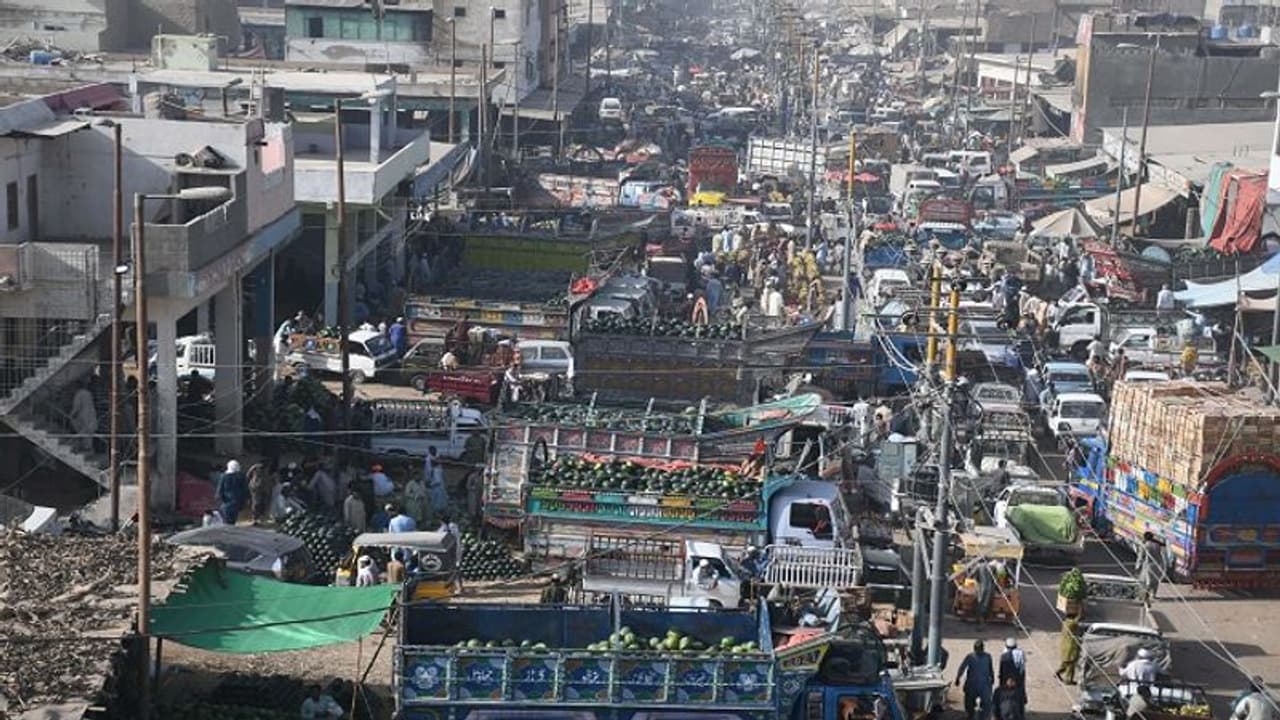It is also said that Hindu women here have earned a sustained livelihood for their families for generations despite challenges and difficulties due to their minority status and the Covid pandemic.
Savita, a 30-year-old Hindu woman clad in her vibrant Banarasi saree is an important part of the undocumented micro economy of Pakistan's biggest cosmopolitan city of Karachi which attracts thousands of migrants and immigrants every year for this reason.

It is reportedly said that Savita belongs to the third generation of her family and runs a makeshift shop on the footpath outside the Empress Market Building in the hustle and bustle of the Saddar area every day to sell dry fruits.
Also read: China's daily COVID tally hits record high with 31,454 cases: Report
It is also said that Hindu women here have earned a sustained livelihood for their families for generations despite challenges and difficulties due to their minority status and the Covid pandemic.
Speaking to a news agency, Savita said, "My grandmother and Naani started working here after the war in 1965 and since then my mother, sister and now me have carried on as it allows us to earn a respectable livelihood."
Women like Savita have kept Karachi thriving as this informal sector accounts for up to 40 per cent of the city's economy and 72 per cent of urban employment.
It is also said that there are about 200 women like Savita who make their living selling dry fruits and nuts at the Empress Market. However, life for these women has been far from easy. Being from the minority Hindu community, they constantly battle harassment and taunts from Pashtun businessmen.
Also read: Virginia shooting: Several killed in mass shooting at Walmart store, gunman dead
Vijaytha, another 20-year-old Hindu women vendor said, "There are times when some shopkeepers, who mostly belong to the Pashtun community fight, with us claiming we disturb their businesses. There have been incidents when some have harassed our women as well."
But Savita along with Mala, another seller, insist that generally the behaviour of the public and people towards them is good and they are not scared of working from morning to evening outside the Empress Market. When asked whether her daughter will also follow in her footsteps, Savita replied, "She is just 15 now we will see what to do."
On further prodding, Savita said she stopped sending her daughter to school in their neighbourhood after some boys started to tease and harass her.
Also read: Kabali 'road show' continues; lifts KSRTC bus with his tusks
Meanwhile, threats of abductions, forced conversions and illegal marriages are no different in Savita's story. Besides limited work opportunities and lack of acceptance, minorities also face a larger threat in the face of inconsiderate behaviour of the institutions meant to protect them.
Before the novel coronavirus pandemic, it is reportedly said that around 500 Hindu women used to work around the Empress Market. "Some of them have now either gone to India or shifted to some other city with relatives," Mala said.
These women grind away under an umbrella, overlooking dust, debris and mounds of filth and squalor. Before the pandemic struck, a mass eviction drive in 2019 upended the lives of these innocent women. The anti-encroachment drive initiated three years ago and funded by the World Bank was meant to provide the Empress Market with a facelift.
The majority of Pakistan's Hindu population is settled in Sindh province where they share culture, traditions and language with Muslim residents.
(With inputs from PTI)
